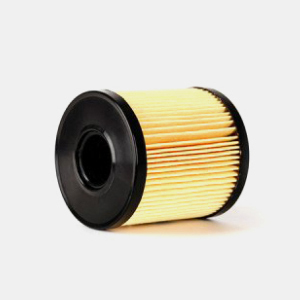-
 Afrikaans
Afrikaans -
 Albanian
Albanian -
 Amharic
Amharic -
 Arabic
Arabic -
 Armenian
Armenian -
 Azerbaijani
Azerbaijani -
 Basque
Basque -
 Belarusian
Belarusian -
 Bengali
Bengali -
 Bosnian
Bosnian -
 Bulgarian
Bulgarian -
 Catalan
Catalan -
 Cebuano
Cebuano -
 China
China -
 Corsican
Corsican -
 Croatian
Croatian -
 Czech
Czech -
 Danish
Danish -
 Dutch
Dutch -
 English
English -
 Esperanto
Esperanto -
 Estonian
Estonian -
 Finnish
Finnish -
 French
French -
 Frisian
Frisian -
 Galician
Galician -
 Georgian
Georgian -
 German
German -
 Greek
Greek -
 Gujarati
Gujarati -
 Haitian Creole
Haitian Creole -
 hausa
hausa -
 hawaiian
hawaiian -
 Hebrew
Hebrew -
 Hindi
Hindi -
 Miao
Miao -
 Hungarian
Hungarian -
 Icelandic
Icelandic -
 igbo
igbo -
 Indonesian
Indonesian -
 irish
irish -
 Italian
Italian -
 Japanese
Japanese -
 Javanese
Javanese -
 Kannada
Kannada -
 kazakh
kazakh -
 Khmer
Khmer -
 Rwandese
Rwandese -
 Korean
Korean -
 Kurdish
Kurdish -
 Kyrgyz
Kyrgyz -
 Lao
Lao -
 Latin
Latin -
 Latvian
Latvian -
 Lithuanian
Lithuanian -
 Luxembourgish
Luxembourgish -
 Macedonian
Macedonian -
 Malgashi
Malgashi -
 Malay
Malay -
 Malayalam
Malayalam -
 Maltese
Maltese -
 Maori
Maori -
 Marathi
Marathi -
 Mongolian
Mongolian -
 Myanmar
Myanmar -
 Nepali
Nepali -
 Norwegian
Norwegian -
 Norwegian
Norwegian -
 Occitan
Occitan -
 Pashto
Pashto -
 Persian
Persian -
 Polish
Polish -
 Portuguese
Portuguese -
 Punjabi
Punjabi -
 Romanian
Romanian -
 Russian
Russian -
 Samoan
Samoan -
 Scottish Gaelic
Scottish Gaelic -
 Serbian
Serbian -
 Sesotho
Sesotho -
 Shona
Shona -
 Sindhi
Sindhi -
 Sinhala
Sinhala -
 Slovak
Slovak -
 Slovenian
Slovenian -
 Somali
Somali -
 Spanish
Spanish -
 Sundanese
Sundanese -
 Swahili
Swahili -
 Swedish
Swedish -
 Tagalog
Tagalog -
 Tajik
Tajik -
 Tamil
Tamil -
 Tatar
Tatar -
 Telugu
Telugu -
 Thai
Thai -
 Turkish
Turkish -
 Turkmen
Turkmen -
 Ukrainian
Ukrainian -
 Urdu
Urdu -
 Uighur
Uighur -
 Uzbek
Uzbek -
 Vietnamese
Vietnamese -
 Welsh
Welsh -
 Bantu
Bantu -
 Yiddish
Yiddish -
 Yoruba
Yoruba -
 Zulu
Zulu
Nylon Mesh Solutions for Enhanced Filtration and Durability in Various Applications
Nylon Screens Versatility and Functionality in Everyday Life
Nylon screens have become increasingly prevalent in various applications, reflecting their versatility and practicality. From industrial settings to recreational activities, the use of nylon screens has revolutionized the way we approach protection, filtration, and separation needs. This article explores the features, benefits, and diverse applications of nylon screens, highlighting their significance in our daily lives.
What Are Nylon Screens?
Nylon screens are made from nylon, a synthetic polymer known for its strength, durability, and resistance to wear and tear. These screens can be woven into various mesh sizes and patterns, lending them flexibility in design and functionality. The manufacturing process often involves twisting and weaving nylon fibers to create a lightweight yet robust screen that can be tailored to specific requirements.
Key Features
1. Durability Nylon is known for its resilience. Unlike some natural fibers, nylon does not absorb moisture, making it resistant to mold and mildew. This characteristic is particularly advantageous in humid or outdoor environments.
2. Lightweight One of the significant advantages of nylon screens is their lightweight nature. This feature allows for easy transportation, installation, and maintenance, which is essential for both professional and recreational uses.
3. Versatile Mesh Sizes Nylon screens come in a variety of mesh sizes, allowing users to choose the right fit for their needs. From fine filtration to sturdy enclosures, the mesh size can be adjusted based on the specific application.
4. UV Resistance Many nylon screens are treated with UV inhibitors, making them suitable for prolonged exposure to sunlight. This property extends the lifespan of the screen and maintains its functionality and appearance over time.
nylon screen

Applications of Nylon Screens
1. Industrial Use One of the most common applications of nylon screens is in industrial filtration. They are used to strain liquids, separate materials, or filter out debris in processes like food production, water treatment, and chemical manufacturing. Their robust construction allows them to withstand harsh conditions and chemicals.
2. Construction and Security In the construction industry, nylon screens are employed as safety barriers, protecting workers from falling debris and providing a secure environment. Additionally, they can be used in windows and doors to prevent insects from entering while allowing for ventilation, making them popular for residential security.
3. Sports and Recreation Nylon screens are frequently used in sports applications, such as protective netting in baseball fields, soccer nets, and basketball backboards. Their lightweight and robust nature makes them an ideal choice for protecting spectators and players alike.
4. Horticulture In gardening and agriculture, nylon screens serve as a means of pest control. They can be used to cover plants, preventing insects from infesting crops while allowing sunlight and rain to nourish them. Furthermore, they can protect seedlings and delicate plants from harsh weather conditions.
5. Crafts and DIY Projects With the rise of DIY culture, nylon screens have found their way into various craft projects. From creating custom window screens to making decorative room dividers, the creative possibilities are endless. They can also be utilized in art and design for unique installations.
Conclusion
Nylon screens are an essential component in many fields, proving their worth through their durability, versatility, and functionality. Their ability to adapt to various environments makes them a go-to choice for both industrial and recreational purposes. As technology advances and new uses are discovered, the impact of nylon screens on our daily lives will undoubtedly continue to grow, providing innovative solutions to age-old problems. Whether you are a homeowner looking for security solutions or an industrial professional in need of reliable filtration, nylon screens offer a practical answer to enhance safety, efficiency, and convenience in everyday activities.
-
Shipping Plastic Bags for Every NeedNewsJul.24,2025
-
Safety Netting: Your Shield in ConstructionNewsJul.24,2025
-
Plastic Mesh Netting for Everyday UseNewsJul.24,2025
-
Nylon Netting for Every UseNewsJul.24,2025
-
Mesh Breeder Box for Fish TanksNewsJul.24,2025
-
Expanded Steel Mesh Offers Durable VersatilityNewsJul.24,2025











